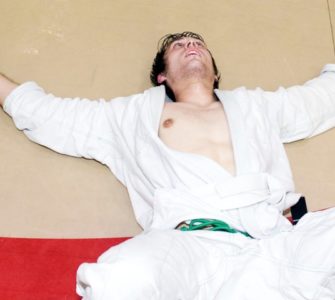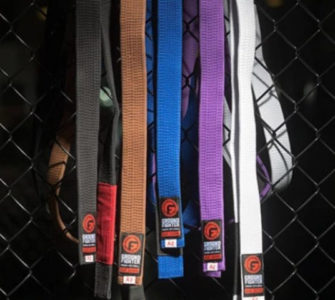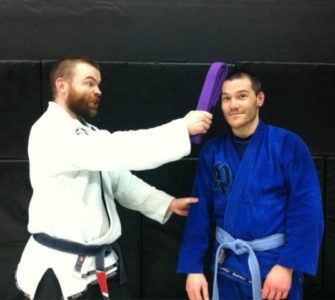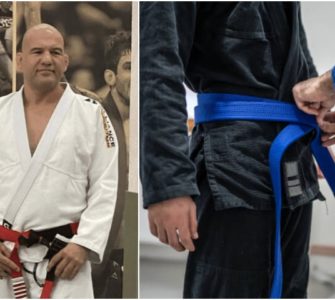When you first start BJJ, it’s easy to get better. You learn new moves and improve after every class. But just showing up to class does not work forever.
From my experience, most people hit a wall sometime as a blue belt. They stop improving and it is often the reason why people quit at blue belt.
Sometime during your time as a blue belt, you reach a basic level of competence. You know most of the fundamental moves and you know what to do from all the important positions. You know how to play the game.
This plateau is very common in other sports too. Many hobbyists never get past it and there is nothing wrong with that as long as they enjoy their sport. But you have to change your training approach if you want to break through and keep improving. Doing the same thing over and over again and expecting a different result is insanity.
At this point, you have to embrace deliberate practice if you want to get better. You can’t just show up to class and mindlessly drill a few moves and then roll. You have to come prepared and work on a specific part of your game.
It all starts with setting proper goals. It’s impossible and overwhelming if you try to become good at everything at once. Set small and reachable goals that will get you closer to your larger goals, step by step. If you want to get better at a specific guard, start with a simple entry or sweep and then build on top of that in the following training sessions.
At the BJJ Lab in Zurich, we offer an hour of open mat before our fundamentals classes start. This is a perfect time to do your deliberate practice.
Deliberate practice is about building skill, not knowledge. You have to acquire the knowledge beforehand. That means that you have to come prepared to class. Watch a few videos on the things that you want to work on and take notes. Bring the notes to training.
During your deliberate practice time, try to focus your attention and avoid chit-chatting with your partner. Pay attention to all the small details of your moves and try to execute them perfectly. You can’t do that when your attention is divided.
Apart from drilling, positional sparring is another good use of your open mat time. Focus on the positions that you need to work on and ask your partner to adjust his resistance to a challenging level.
Ask your partner to go easy in the beginning, but slowly increase his resistance over time. If you can’t hit your moves anymore, he should take 2 steps back and then slowly increase the resistance again. This should keep it challenging for you, but you will also get successful repetitions in.
You can also use the principles of deliberate practice in a regular BJJ class. It all comes down to paying attention and challenging yourself.
Try to perfect every repetition during the drill portion of the class. Make sure that you get all the small details right. If you can do it slow, increase the speed. Ask your partner to resist a little more. Get out of your comfort zone and get close to the limits of your current skill.
You also want to challenge yourself during the rolling part of class. That doesn’t mean that you should only roll with higher belts. Instead, put yourself into positions that you are working on against white belts. Try your newly acquired moves and put yourself in bad positions. If you can get your moves to work, try them against better training partners.
Deliberate practice doesn’t sound like fun. And it isn’t. But neither is being stuck on a plateau and not getting better.
You don’t have to use deliberate practice for every single training session. Make sure that you still enjoy your training. But I can guarantee that your training will be much more fun when you can see yourself getting better again.

















